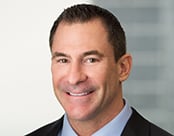Chair’s Speech and Commissioner’s Remarks
Chair Gensler
Chair Gary Gensler kicked off SEC Speaks by repeating the mantra used by the Commission’s first Chairman, Joseph Kennedy: “No honest business need fear the SEC.” He then recounted the history of the securities laws, explaining that the first securities law, the Securities Act of 1933 (the “Securities Act” or the “’33 Act”), was enacted to require issuers to provide full, fair, and truthful disclosures to the public. He stated that thereafter, Congress passed additional laws to cover other market participants, such as exchanges, broker-dealers, advisers, and funds. Accordingly, Chair Gensler emphasized that Congress has always been active in refining and amending the securities laws to advance investor protection, as needed.
Chair Gensler then turned his attention to crypto markets, stating that, from his perspective, nothing about them is incompatible with the existing securities laws. He stated that he believed the vast majority of tokens in the crypto markets are securities. However, he acknowledged that some tokens may not be securities—what he referred to as “crypto non-security tokens.” In describing the definition of securities, Chair Gensler stated that Congress painted “with a broad brush,” and he reiterated former U.S. Supreme Court Justice Thurgood Marshall’s comment that “Congress’ purpose in enacting securities laws was to regulate investments, in whatever form they are made and by whatever name they are called.” Chair Gensler further noted that, when the public buys or sells crypto security tokens, they expect profits derived from the efforts of others, which Chair Gensler stated was a “core consideration” under the U.S. Supreme Court’s Howey test for determining what is an investment contract.
Chair Gensler remarked that investors often learn about crypto projects via social media and promotional materials on the internet. He stated that investors should be provided with appropriate disclosures to assist them in finding investments they believe will flourish. He emphasized that it was critical that crypto investors are protected against fraud and manipulation, as required by the securities laws, and that he has directed the SEC staff (the “Staff”) to work with crypto projects to get their tokens registered and regulated as securities.
As for crypto intermediaries—often a combination of service providers that are traditionally separate in the securities market, such as exchanges, broker-dealers, clearing houses, and lenders—Chair Gensler noted that, because these intermediaries are transacting in securities, they should register with the SEC in some capacity. For example, he stated that crypto platforms match buyers and sellers using non-discretionary methods, as exchanges do. He also stated that crypto intermediaries enter into transactions on behalf of others like brokers and that they buy and sell tokens for their own accounts like dealers. Chair Gensler further observed that, if crypto intermediaries provide any lending functions, they, too, come under the jurisdiction of the SEC. He reiterated that crypto investors should be protected against fraud, manipulation, and other misconduct by these intermediaries in the same ways that all other securities investors are protected.
Chair Gensler closed his remarks by stating that the SEC’s oversight of the securities markets does not change because of the emergence of new technologies. He stated that he looked forward to working with crypto providers and intermediaries to ensure that they are compliant with securities laws.
Commissioner Uyeda
Commissioner Mark Uyeda, who was sworn in as an SEC Commissioner approximately two months ago, spoke about his views on regulation. He noted that his approach to regulation is shaped by his professional experience, including working in private practice drafting securities offering disclosures and routine filings, working as a state securities regulator where he witnessed both egregious frauds and inspiring instances of entrepreneurs seeking capital, and working on rulemaking at the SEC. He cited the SEC’s tripartite mission (investor protection, maintenance of fair, orderly, and efficient markets, and facilitation of capital formation) as the foundation for regulation, and opined that regulation should be guided by the objective of ensuring that issuers of securities tell the truth—and the whole truth—to the public with respect to those securities.
Commissioner Uyeda also noted the importance of prioritizing effective and cost-efficient regulations. He stated that he analyzes regulations using a two-by-two matrix: one axis categorizes regulations as effective or ineffective, the other as costly or not costly. Commissioner Uyeda remarked that he believes that regulators should strive for regulations that are effective and not costly, but believes that most current SEC rules currently fall into the box of “ineffective but not costly.” He believes that the Commission’s structural design allows it a degree of independence and protection from political accountability to voters in return for a narrow scope of responsibilities. In light of that, Commissioner Uyeda feels that the Commission must avoid the temptation to use the federal securities laws to influence business conduct or address societal concerns absent financial materiality. Complex societal questions unrelated to financial market practices are, in his view, best addressed by the legislative branch.
With respect to practical rulemaking considerations, Commissioner Uyeda noted that economic analysis is an important part of the rulemaking process, that comment deadlines of 30 days after publication in the Federal Register are insufficient, and that the Commission should re-propose rules that are more than five years past the original proposal instead of merely reopening the comment period.
He also addressed the contentious practice of rulemaking by enforcement actions. He is opposed to this practice because, in his view, it fails to provide a process for consideration of the views of market participants and fails to provide the type of guidance that allows market participants to understand and adhere to the regulatory framework. Instead, regulation by enforcement requires market participants to seek to determine how the unique facts and circumstances of an enforcement action apply to them.
Finally, Commissioner Uyeda noted that the Commission must be willing to tackle complex issues, such as regulation of crypto assets and related services. He noted concern that lack of predictability regarding regulation in this space will cause crypto firms to relocate to other jurisdictions, and he identified two specific issues that he believes that the Commission should address through rulemaking (as opposed to via enforcement as it has done to date): do crypto assets constitute securities and, if yes, how do market participants comply with federal securities laws and related rules?









